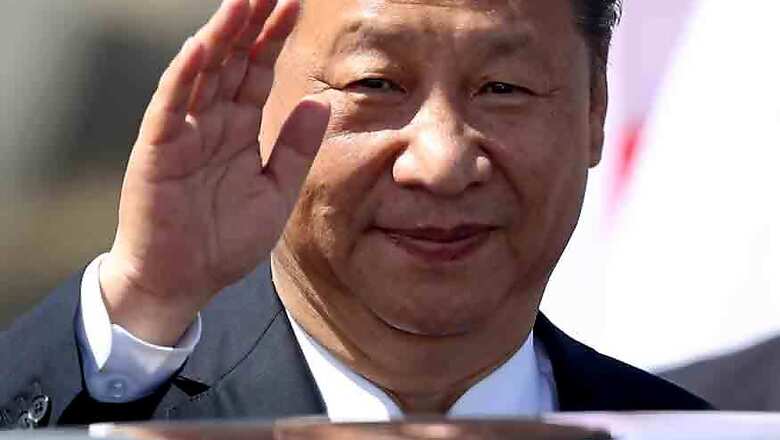
views
Xiamen: President Xi Jinping said on Tuesday that emerging market economies and developing countries have become the "main engine" of world economic growth, as he announced that China will provide USD 500 million to help such nations.
Xi made the announcement at a meeting in which leaders of the five BRICS countries, including Prime Minister Narendra Modi, and heads of Egypt, Guinea, Mexico, Tajikistan and Thailand took part. It was held on the sidelines of the 9th BRICS Summit under China's BRICS Plus initiative.
"I wish to announce that China will provide USD 500 million for assistance fund for South-South Cooperation," Xi said addressing the Dialogue of Emerging Market and Developing Countries here.
The money will be used to help fellow developing countries to tackle famine, refugees, climate change, public health and other challenges, he said.
"The purpose of inviting some representatives of developing countries from different regions to this dialogue is to foster a broad network for developing partnerships and build a community of common development and a shared future," Xi said.
The Chinese president called for stronger solidarity and cooperation among emerging market economies and developing countries to implement the 2030 Agenda for Sustainable Development.
He said efforts should be made to enhance the representation and voice of emerging market economies and developing countries in the global economic governance.
Xi said the emerging market economies and developing countries have become the "main engine" of world economic growth.
In his address, Xi also spoke about his Belt and Road Initiative (BRI) of which the USD 50 billion China Pakistan Economic Corridor (CPEC) passing through Pakistan-occupied Kashmir (PoK) is an integral part. India has protested to China about the CPEC as it passes through PoK.
India had also boycotted the Belt and Road Forum (BRF) which was organised by China in May this year in support of the BRI. India, however, is part of the Bangladesh, China, India and Myanmar (BCIM) Economic Corridor, which is also part of the BRI.
Speaking at length about the initiative, which is widely seen as an attempt by Beijing to firm up its influence with a vast network of roads, rails and port infrastructure, Xi said China will also provide "40,000 training opportunities" for the developing countries in China in the coming years.
"Four years ago, I put forward the idea of Silk Road Economic Belt and 21st Century Maritime Silk Road. The initiative received warm response from the international community," Xi said.
"In May, this year China hosted a successful Belt and Road Forum for International Cooperation. Together with the participating countries and international organisations we outlined vision under the Belt and Road Initiative (BRI) and proposed concrete measures along the BRI in pursuing sustainable development," he said.
It is widely agreed that the philosophy and vision of the BRI and its focus on policy, infrastructure, trade, financial and people to people connectivity have much in common with 2030 agenda for the sustainable development and the two can complement very well each other, Xi said.
"The BRI is much a part of cooperation as much as one of hope and mutual benefit. As a follow up to the BRF, China will develop cooperation with interested countries in infrastructure connectivity, production capacity and technological innovation and other fields," he said
Emerging markets and developing countries represent the future of the world development, Xi asserted.
"It is our duty to promote international cooperation on development and implement sustainable development agenda. Let us work together to blaze a new path of development that is fair, open, comprehensive and innovative," he said.
The BRICS Plus arrangement floated by China was part of a tradition being followed by the five-member BRICS grouping in which the host country invites nations of their choice to take part in the dialogue with the BRICS leaders.
Chinese Foreign Minister Wang Yi had told the media recently that the five countries that are taking part in the dialogue are not permanent invitees but only participating in the meeting for this Summit.
He compared their presence to India's invitation to BIMSTEC (Bay of Bengal Initiative for Multi-Sectoral Technical and Economic) leaders for last year's Goa Summit.




















Comments
0 comment